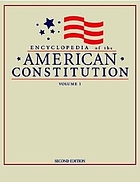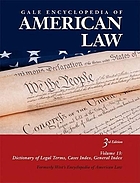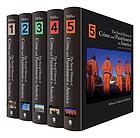From Chpt. 14 in Criminal Evidence, an Introduction:
| wrongful conviction | evidence |
| eyewitness testimony | exoneration |
| the innocence project | compensation statutes |
| "moral obligation bills" | section 1983 |
| The center on wrongful convictions | immunity |
| convicted innocent | ineffective assistance of counsel |
Additional Key Concepts/Language:
An overview of your broad topic area helps you understand...
The articles below offer just a sample of what's available in GVRL.
Use reference articles to understand the general view of what is happening with an issue, who is involved, and why there is debate over it.
You can use important words or ideas (see the highlighted words in the example below) as keywords to build more focused or related searches.
Reference articles provide background info on a topic. Read reference articles for: definitions, core issues, events, stakeholders, terminology, and more.
Use those key words to help focus your research and as search terms in library databases.

 Encyclopedia of the American Constitution
Encyclopedia of the American Constitution Gale Encyclopedia of American Law by
Gale Encyclopedia of American Law by  Gale Encyclopedia of Everyday Law by
Gale Encyclopedia of Everyday Law by  The Social History of Crime and Punishment in America: An Encyclopedia by
The Social History of Crime and Punishment in America: An Encyclopedia by  Analyzing Crime and Social Control
Analyzing Crime and Social Control Encyclopedia of Criminal Justice Ethics by
Encyclopedia of Criminal Justice Ethics by